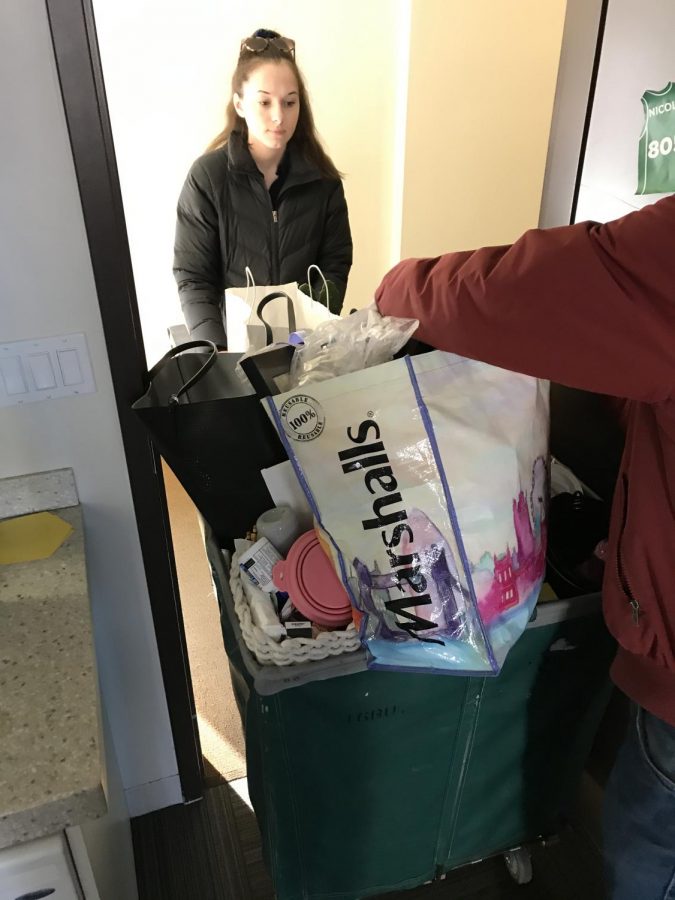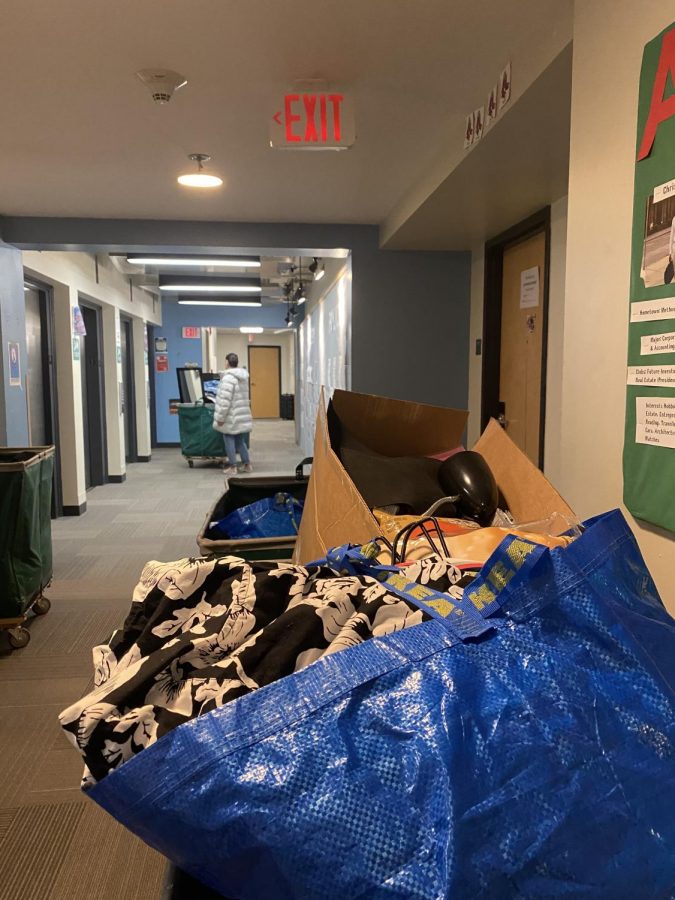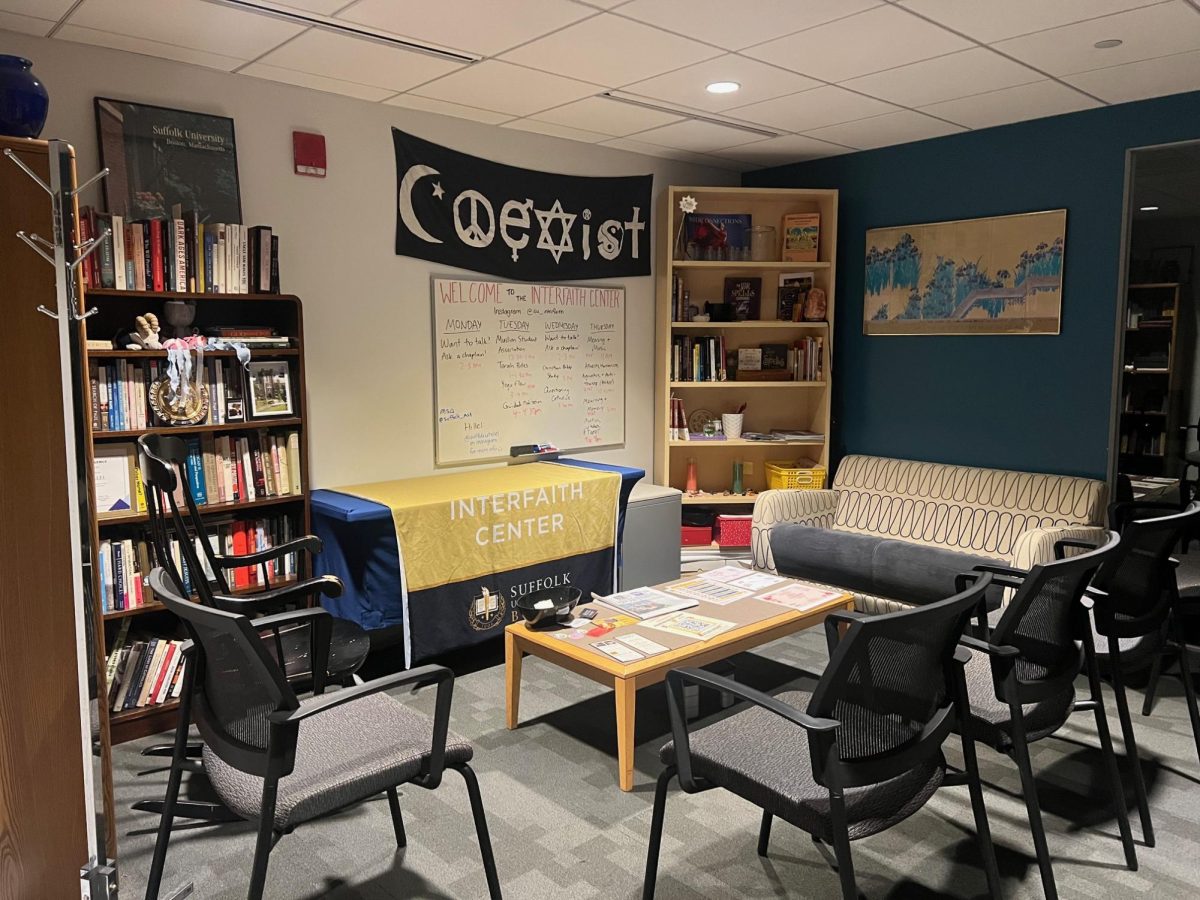Students moving out of Suffolk University’s residence halls over the weekend weren’t packed together on sidewalks with mountains of belongings, or fighting to stuff themselves onto elevators.
Instead, the residence halls were relatively empty and felt eerily quiet on some floors; like the calm before a storm the nation is racing to face.
“Moving out today was really hard but I know it was for the best,” said Suffolk freshman Rachel Vincent. “The fact that it came so sudden is what makes it so challenging, but seeing the drastic changes that have been made in the last couple of days, I’m glad I can be home with my family instead of at school not knowing what’s going to happen next.”
Last week, Suffolk announced all classes will be held remotely for the rest of the semester due to the coronavirus outbreak. Students living on campus were told to completely move out of their dorms if they did not have extenuating circumstances.
By Sunday, President Donald Trump had declared a national emergency and Massachusetts Governor Charlie Baker had banned gatherings of more than 25 people, shut down all public and private schools in the state for three weeks and said all restaurants could only serve take-out and delivery.
The Massachusetts Department of Health said that as of March 15, 164 Massachusetts residents have come down with the virus. Most cases have appeared in Middlesex County, which currently numbers at 75. Suffolk County, which neighbors Middlesex, has 31.
Trump urged Americans to refrain from traveling and implemented travel bans to Europe earlier this week. Several people who attended events hosted by the president have tested positive for the virus, according to the New York Times. Trump said he was tested for the virus, and that the results came back negative.
In Massachusetts, Baker said pharmacies and grocery stores will remain open.
“If we take decisive steps now and everyone plays their part by following the best medical guidance, we can slow down the spread,” Baker said.






















